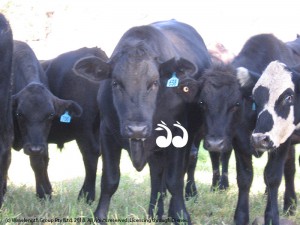Kikuyu Poisoning Alert
WHILE most of the Upper Hunter is struggling to have any pasture, Hunter Local Land Services are warning of an outbreak of kikuyu poisoning which usually occurs within 48 hours of rain.
Digby Rayward, district veterinarian for Hunter LLS said the poisoning appears sporadically in cattle, especially after a protracted dry period like the region has experienced and there have been at least three case in recent days.
“Producers need to regularly monitor stock on kikuyu dominant pastures and where possible provide alternate feed such as silage or hay,” said Dr Rayward.
“Generally cattle dislike and avoid the affected kikuyu pasture and poisoning only occurs when they have no other choice but to eat the toxic pasture,” he said.
“Over my 40 year career as District Vet I have seen less than 20 cases of kikuyu poisoning, with the most extreme case in the Tea Gardens area, where 70 cattle died,” he said.
“Kikuyu poisoning is an acute disease usually occurring 24-48 hours after exposure to toxic pasture which can result in sudden death.
“There is no specific treatment available for kikuyu poisoning but they can recover if removed from the toxic pasture and supportive care is provided.
“It is recommended to remove stock from the pasture for as long as possible, then slowly and carefully reintroduce them to the paddock.
“It is important to provide another feed source such as hay or silage to dilute out the toxin if any still remains,” said Digby Rayward.
Clinical sign of kikuyu poisoning include: drooling, sham drinking, tongue paralysis, dehydration, unusual vocalisation, abdominal pain, distended rumen, smelly green diarrhoea, lack of coordination, staggering, high stepping gait, aimless wandering, lying down and reluctance to move.
Contact your local Hunter Local Land Services district vet if you have concerns for stock on your property: Jane Bennett, Upper Hunter District Veterinarian: 0427 322 311.
 scone.com.au
scone.com.au